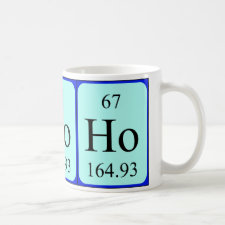
Authors: Zhou ZY, He LC, Mao Y, Chai WS, Ren ZQ
Article Title: Green preparation and selective permeation of d-Tryptophan imprinted composite membrane for racemic tryptophan.
Publication date: 2017
Journal: Chemical Engineering Journal
Volume: 310
Issue: (Part 1)
Page numbers: 63-71.
DOI: 10.1016/j.cej.2016.10.070
Alternative URL: http://www.sciencedirect.com/science/article/pii/S1385894716314802
Abstract: Enantioseparation of racemic tryptophan is very important for pharmaceutical production. Conventional separation methods are high costly, energy intensive and environmentally unfriendly. Permeation separation based on membrane separation technique is a promising technology with advantages of energy efficient, clean and no additives. However, lots of organic compounds are commonly used for the traditional preparation of various membranes for enantioseparation of racemic tryptophan. Thus, we developed a totally green and clean preparation method using nature polymer sodium alginate as functional polymer, water as solvent and CaCl2 as crosslinking agent. Besides, polyvinylidene fluoride membrane was selected as supported membrane. Molecularly imprinted technology with d-Tryptophan as template molecule was introduced to enlarge mass transfer flux. Various methods were used in characterization of molecularly imprinted composite membrane (MICM) and non-imprinted composite membrane (NICM). Effects of preparing conditions, permeation conditions and concentration polarization on permeation performance of MICM by pressure-driven were investigated. High enantiomeric excess (ee% > 98%) of the permeation solution could be obtained under mild conditions. Reducing the presence of concentration polarization was beneficial to maintaining high ee% (>98%). Moreover, the thermo and chemical stability of MICM were studied too. Comparison with previous studies indicated that the proposed totally green and clean method was not only low costly and environment friendly but also beneficial to significantly increasing ee
Template and target information: d-tryptophan, tryptophan
Author keywords: Molecularly imprinted composite membrane, chiral resolution, Mechanical strength, Permeation flux, Enantiomer excess



Join the Society for Molecular Imprinting

New items RSS feed
Sign-up for e-mail updates:
Choose between receiving an occasional newsletter or more frequent e-mail alerts.
Click here to go to the sign-up page.
Is your name elemental or peptidic? Enter your name and find out by clicking either of the buttons below!
Other products you may like:
 MIPdatabase
MIPdatabase









